Do bad eggs float or sink? This is what the boys and I set out to investigate in a recent learning activity to help them get stoked for back to school!
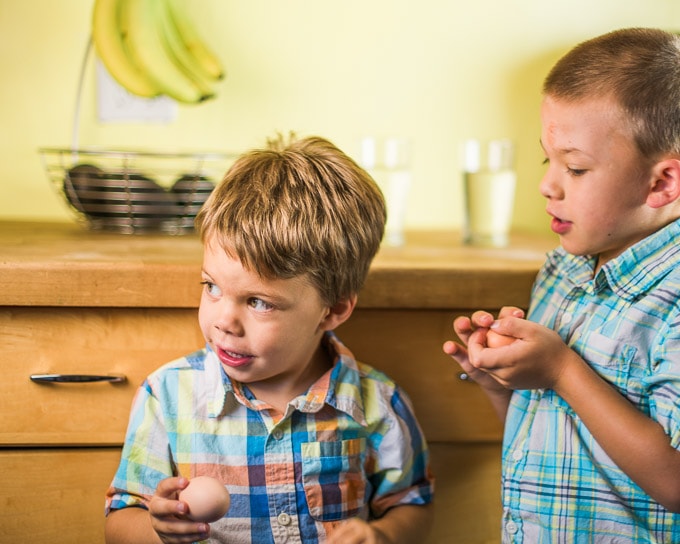
Teaching the kids writing and artistic stuff comes naturally to me as one of those right-brained types. Some Boy, on the other hand, is an analytical science-y dude. He shoots all sorts of technical questions at me, which serves as a good reminder to incorporate the various subjects into our lessons. I want the kids to have hands-on experience with all sorts of topics!
Now, back to the question at hand: do bad eggs float or sink?
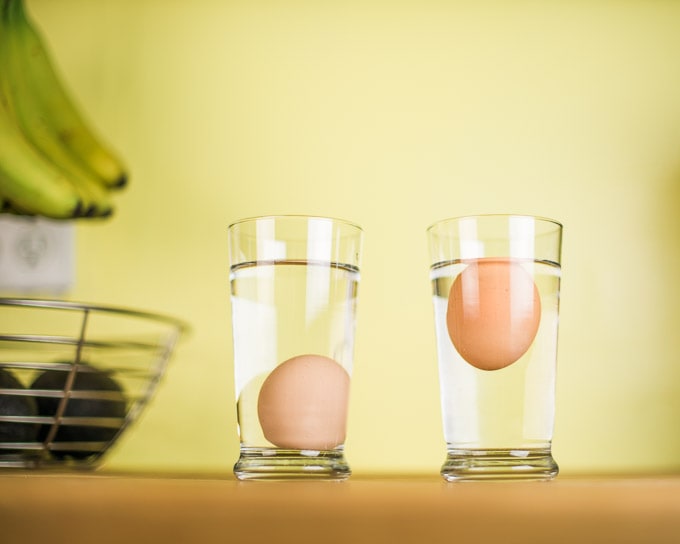
We have backyard chickens and collect their eggs frequently, but every once in awhile I wind up with an overage and lose track of how old a particular egg set is. It's easy enough to find out if an egg is good or bad, though. Simply place it in a cup of water and watch what happens!
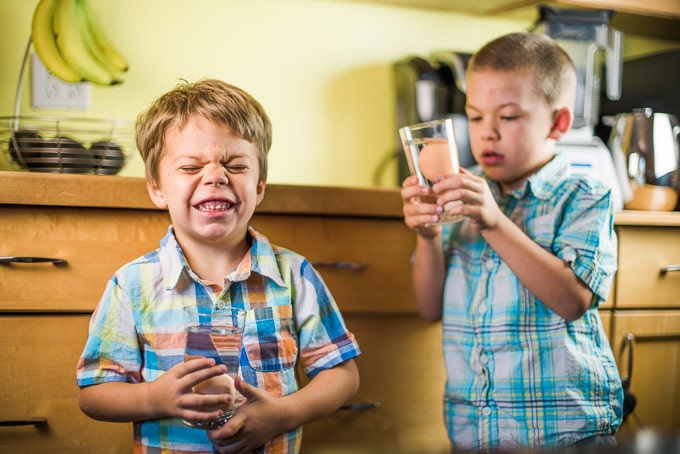
Can you guess whether bad eggs float or sink based on the kids' reactions? Sidekick is overjoyed with his totally-edible sunk egg, while Some Boy looks a little dismayed about his rotten floater.
That's right. Bad eggs float.
But how do we know?
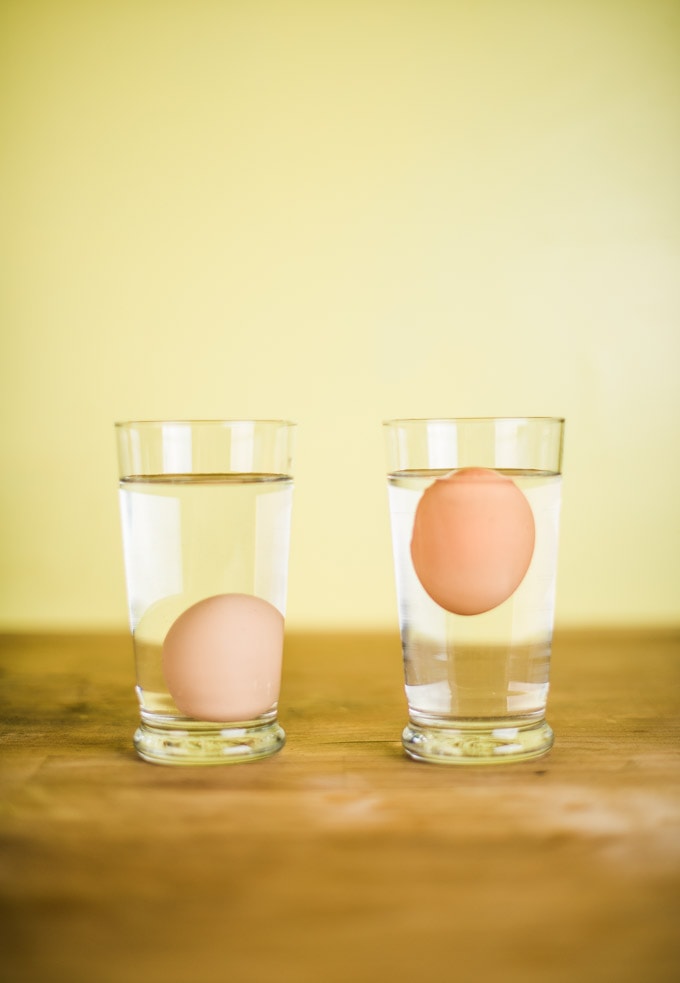
I may not be hugely savvy when it comes to explaining the theories and technical matters behind STEM, but I've found that almost any lesson can become totally approachable in the kitchen. Maybe it's because I like food so much. Snack time is a great motivator. In any case, real-life application is what it's all about! When we ask, “Do bad eggs float or sink?” the deeper thought behind those words is an inquiry into density and buoyancy.

Eggshells may look hard, but they're actually porous. Tons and tons of little holes in the shell allow air to pass into the egg. Over time, more and more air accumulates in there. Simultaneously, the fluid that makes up the majority of the egg's density slowly evaporates out.
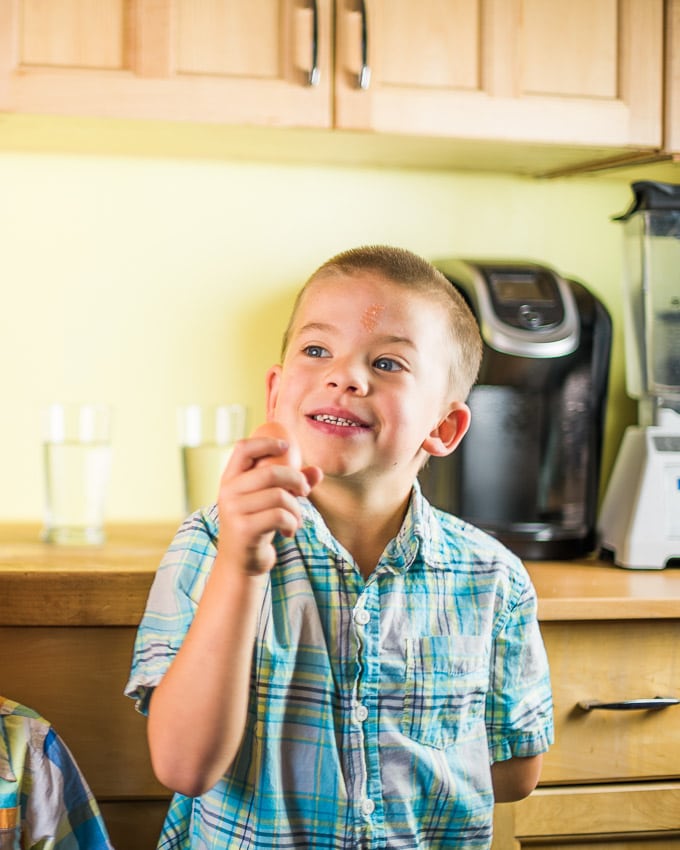
Since water is more dense than air and decreased mass makes for a lighter egg overall, the old eggs are carried right up to the top a cup of water. Lesson learned? Bad eggs float.

We're proud to partner with Bayer to share their award-winning initiative called Making Science Make Sense (MSMS). They're advancing science literacy across the United States by encouraging parents and students everywhere to get hands-on with inquiry-based experiences that involve observing, experimenting, hypothesizing, analyzing and testing. The company has created tons of exciting, hands-on lessons to ignite kids' scientific curiosity from a young age. After all, that's the most important time to get those wheels turning.
What barriers do you experience in encouraging STEM learning beyond the classroom? Do you do any science experiments at home?